Apart from visiting Gamcheon Cultural Village, I thought Beomeosa and Haedong Yonggungsa Temples would make the trip complete. Unfortunately, I couldn't wake up in time the next day for a visit to Yonggungsa Temple, so I guess it means I have a reason to visit Busan again sometime soon! I would love to make time for a temple stay too if I have a chance!
This is also park of a Geopark Geotrail
Beomeosa Temple is the most informative temple I've visited in Korea thus far.
Beomeosa Temple, with a tradition over a thousand years, in a holy place where monnks practice in the tranquility of a mountain temple. Please do not disturb the practitioners.
Geumjeong "Chongrim" (lit. Comprehensive Training Monastery), Beomeosa Temple was named from the legend which is a "fish from the Brahma heaven" (Kor. Beomeo) swam in a "golden well" (Kor. Geumjeong). Beomeosa Temple was built by Great Master Uisang, a leading monk at the time, in the 18th year of King Munmu of the Silla Dynasty (678 CE). It is one of 25 major temples in Korea and has 11 hermitages on the mountain and more than 200 branch temples around the nation. It is also Korea's major temple of Seon practice as well as a Comprehensive Training Monastery.
Templestay
Korean temples have been a place of refuge for the Korean people for more than 1,700 years. These temples, with a tradition over a thousand years have opened their gates to allow everyone to experience the traditional Korean Buddhist culture. Beomeosa Temple offers overnight "Templestay" programs, 1-day "Temple Life" programs for visitors to learn and feel Korean Buddhism. You can cleanse your mind through a meaningful journey to search your true nature while staying at a beautiful temple.
It's time to get off your horse.
The Bojeru Pavilion (lit. Universal Salvation Pavilion) is the largest hall of Beomeosa Temple and most Dharma assemblies and Buddhist rituals are held here. The current pavilion was newly built through a massive reconstruction to restore traditional architecture in 2012.
Palsangjeon, Dokseongjeon, Nahanjeon HallsThe unique style of architecture by Ven. Hakam in 1906 incorporates three Buddhist shrines: The Palsangjeon, Dokseongjeon and Nahanjeon Halls. The Palsanjeon Hall enshrines the "Paintings of the Eight Great Events from Shakyamuni Buddha's Life", while the Dokseongjeon Hall enshrines Ven. Naban, a hermit who attained enlightenment on his own. The Nahanjeon Hall features Shakyamuni Buddha as the main image with 16 Naharo (nahan: arhat in Sankrit), or 16 holy disciples, on both sides.
Sea of Rocks
Dolbada (Sea of Rocks) at Beomeosa TempleA visitor walking from the colony of Japanese wisteria along Beomeocheon Stream will find a spectacular heap of rocks extending from Geumgangam Hermitage to the North Gate at Geungjeongsanseong Fortress. This area, called Dolbada ("Sea of Rocks" is 70m wide and 2.5km long. It was formed by the natural process of water freezing and melting repeatedly in nearby chasms. The murmuring sound of water flowing to down Daeseongam Hermitage was thought to inspire religious faith, and it is regarded as one of the eight scenic view of Geumjeong, and has the special name of Daeseong Eunsu ("Silver Water of Daeseong").
How do we differentiate between Pine, Pitch Pine and Korean Pine?Pine trees are a favourite in Korea. While there are many trees with a similar appearance, pine trees are characterised by having two needles per bundle. The pitch pine and Korean pine have three and five needles respectively.
Walking back down
Gregarious Wisteria HabitatA grove of some 6,500 wisteria grown around Beomeosa Temple. Such a natural habitat is rare in Korea. The Beomeosa Temple valley is most beautiful in May when the wisteria are in full bloom. This place is like primeval forest and it is a habitat for over 200 other species of trees and rare plants.
Arrived by bus, leaving by metro
After Beomeosa Temple, I visited Centrum City which is one half Shinsegae Department Store (the largest one in the world) and one half Lotte Department Store (no sign of the last "Big Three" department store, Hyundai).
After hanging around Lotteria till closing, I headed to Haeundae Spa (had a soak before turning in) for the night, which was rather good a sleep, I managed to sleep beside a power socket even. So good, I couldn't wake up in time to visit the Yonggungsa Temple, nor catch sight of Haeundae Beach.
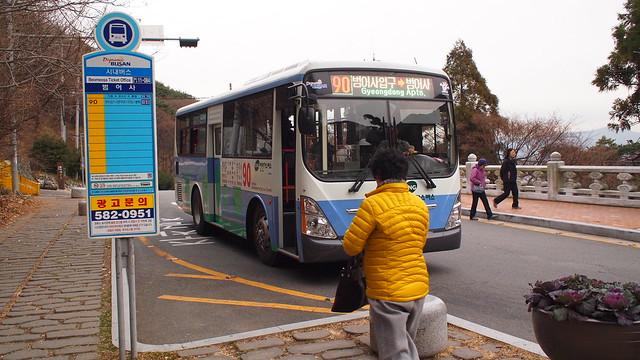
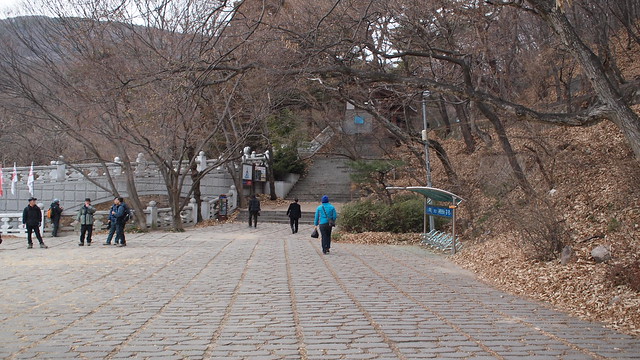
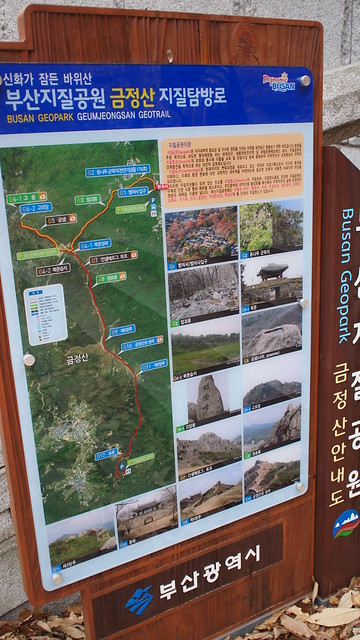

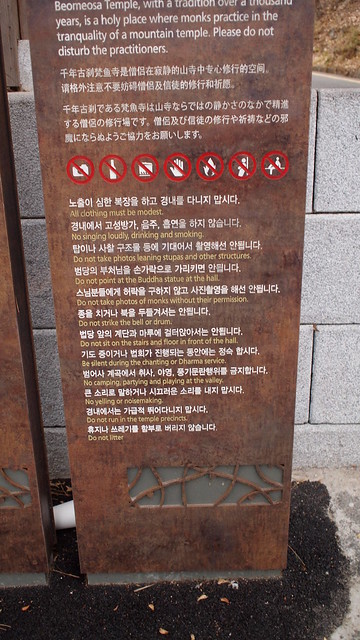
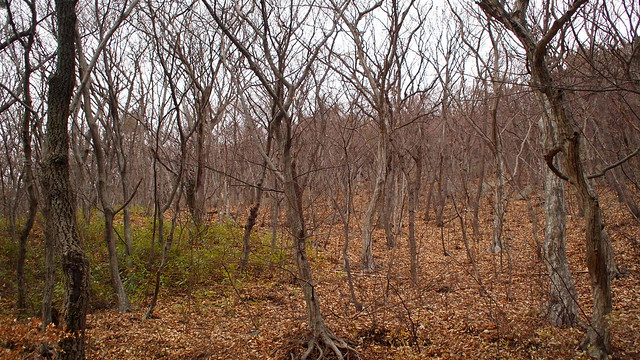
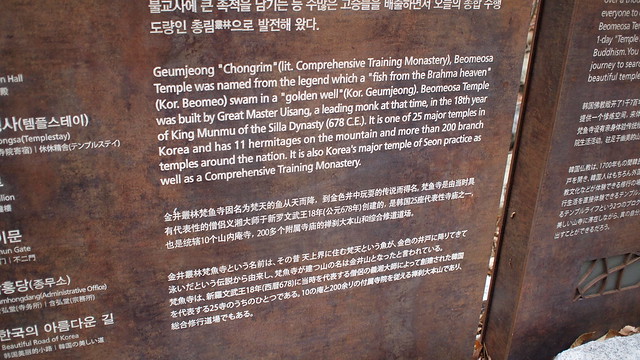

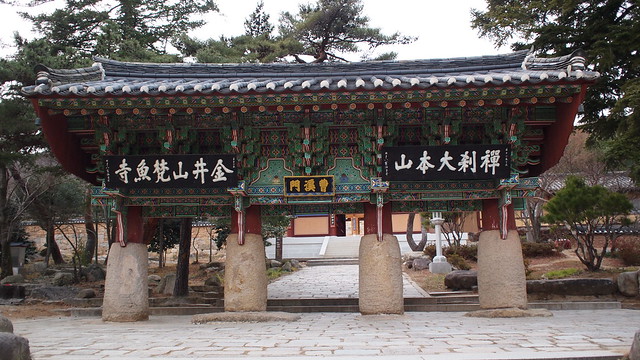


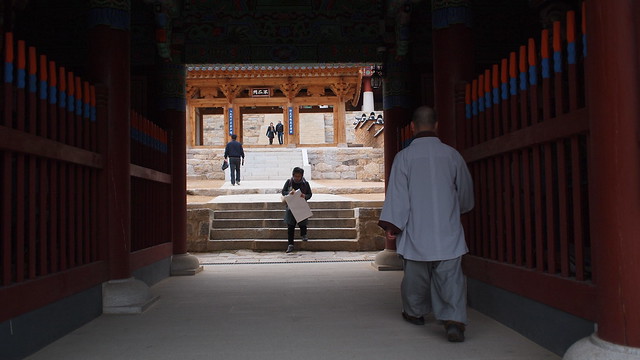
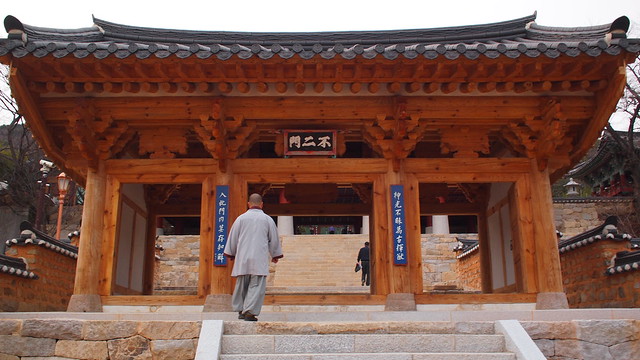
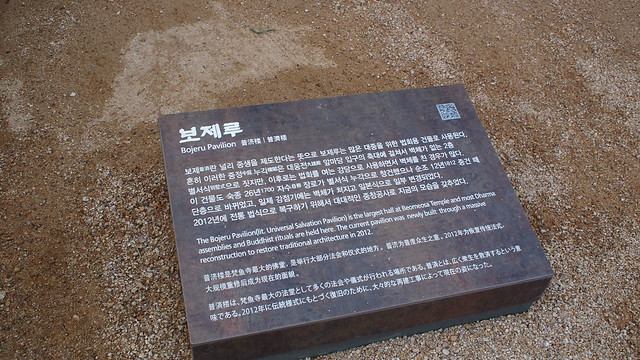

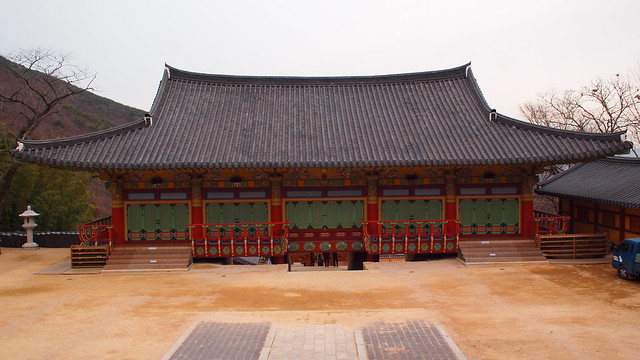

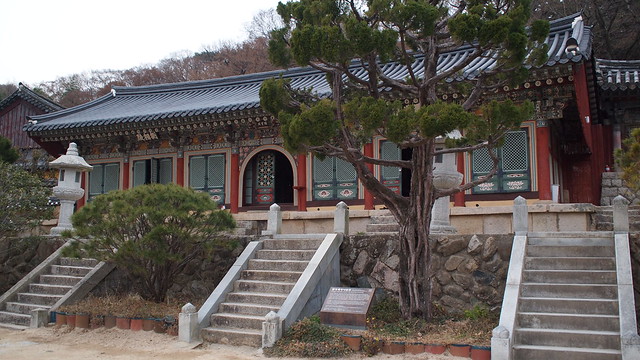

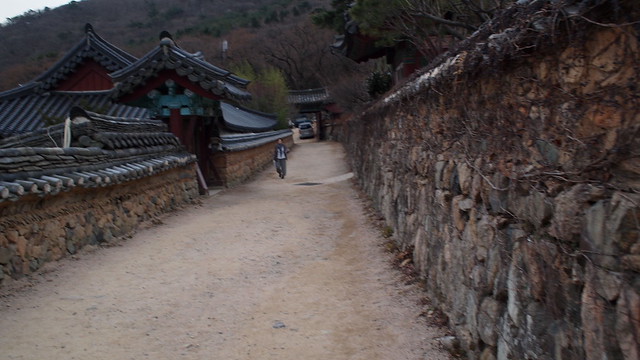


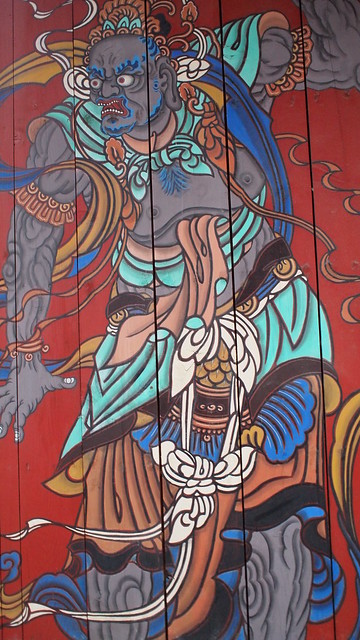
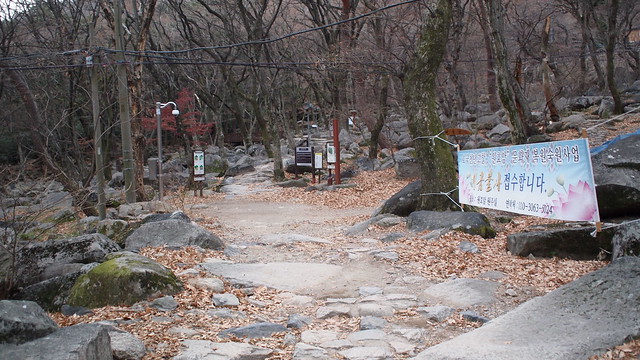

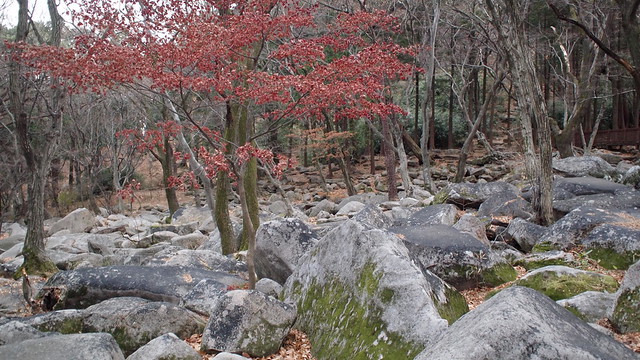
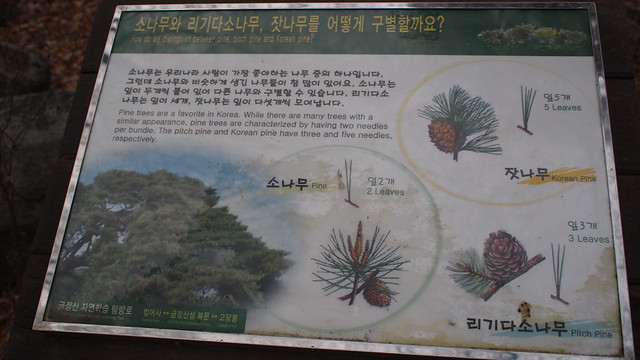
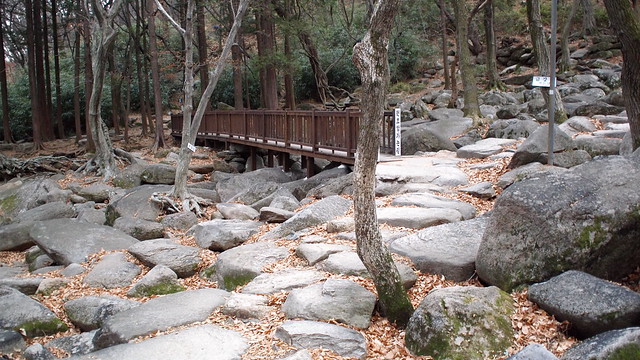

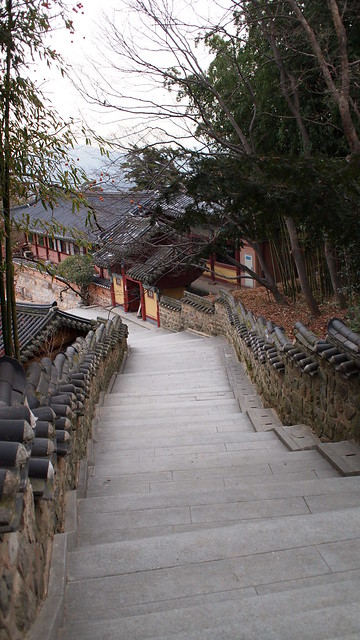
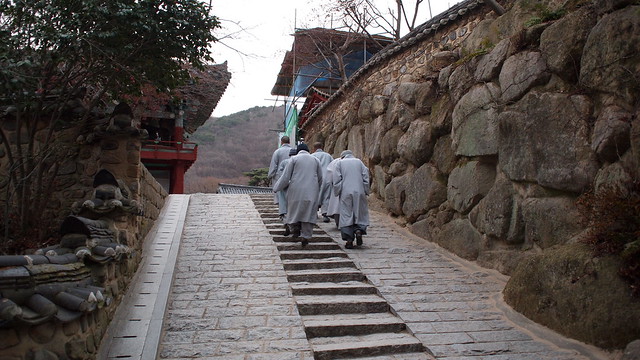
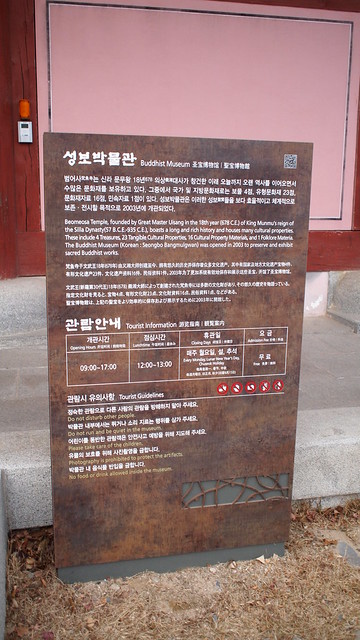
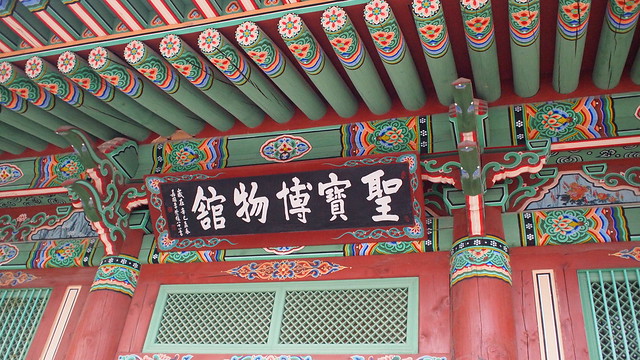
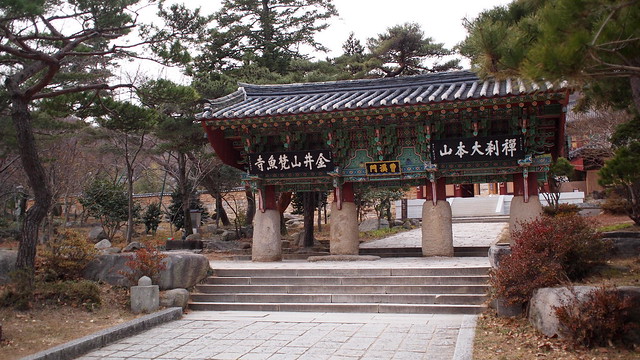
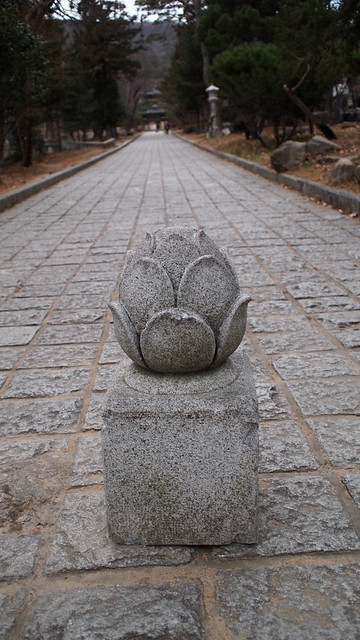

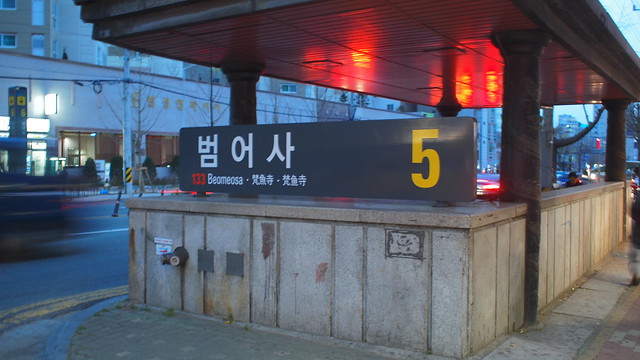

No comments:
Post a Comment